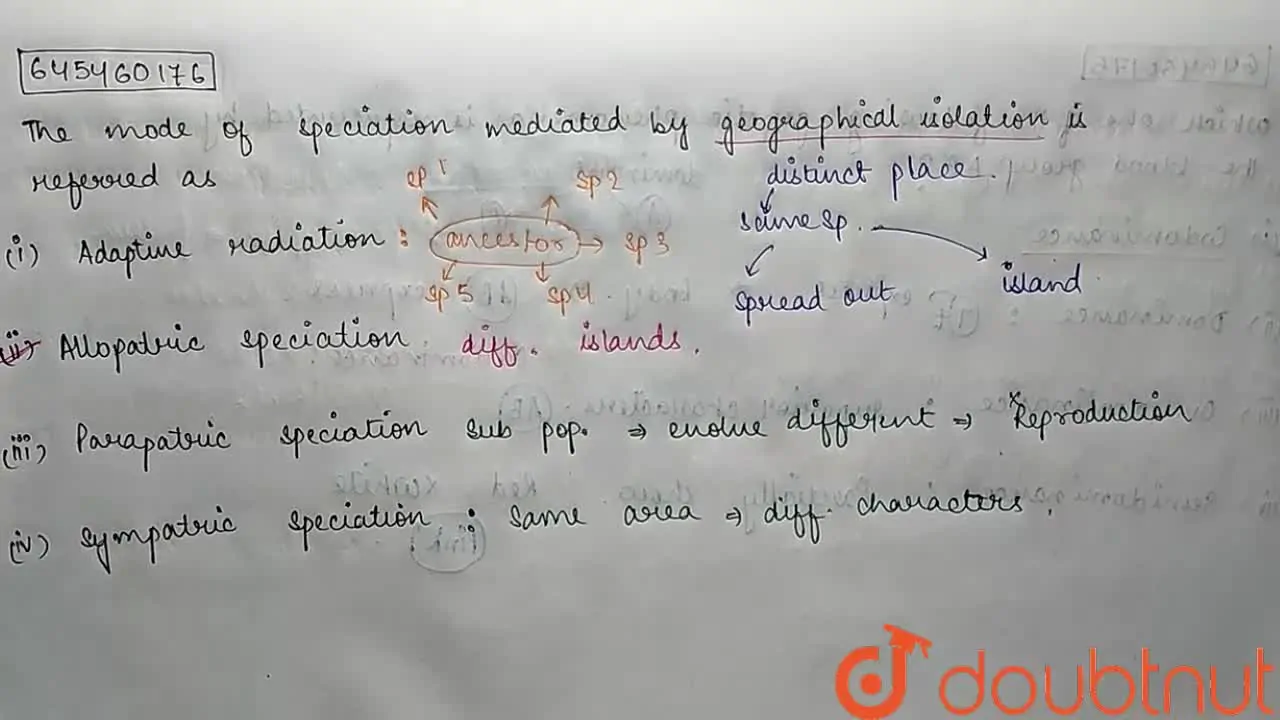The mode of speciation mediated by geographical isolation is referred to as
A
adaptive radiation
B
allopatric speciation
C
parapatric speciation
D
sympatric speciation
Video Solution
|
Answer
Step by step video & image solution for The mode of speciation mediated by geographical isolation is referred to as by Biology experts to help you in doubts & scoring excellent marks in Class 11 exams.
Updated on:21/07/2023
Similar Questions
What is geographical isolation?
View SolutionCause of speciation is
View SolutionExplain Geographical Isolation
View SolutionSpeciation is caused by :
View SolutionSpeciation in geographically separated region is
View SolutionGeographical isolation leads to speciation.
View SolutionDefine speciation.
View SolutionSpeciation in geographically separated region forms
View SolutionOne of the important consequences of geographical isolation is
View SolutionOne of the important consequences of geographical isolation is
View Solution


